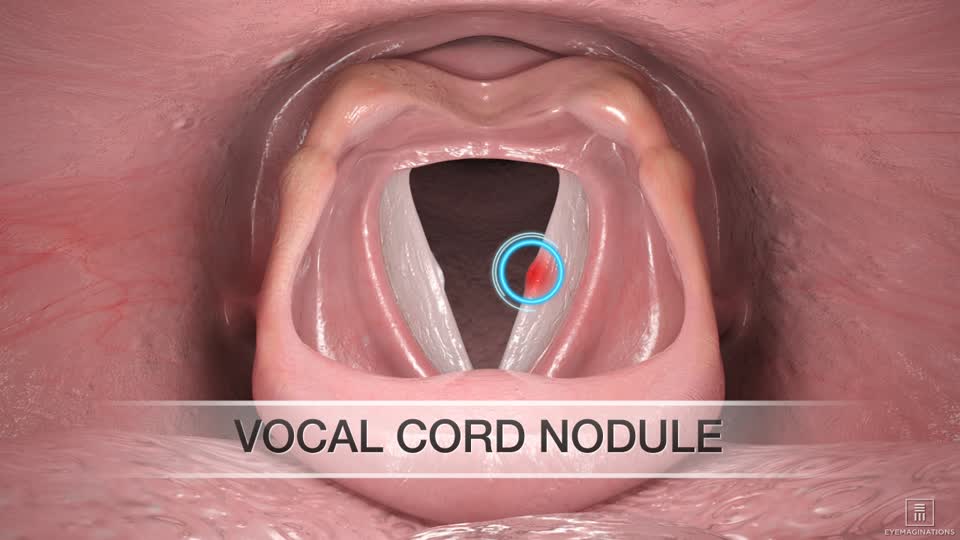Conveniently located to serve San Diego and Chula Vista

Are you experiencing persistent hoarseness or voice changes? Vocal cord nodules and polyps could be the culprit. At ENT Associates Of San Diego, our dedicated team of ENT specialists provides expert care for individuals dealing with these common voice disorders.
What Are Vocal Cord Nodules and Polyps?
Vocal cord nodules are noncancerous growths on both vocal cords. Repeated abuse of the vocal cords results in soft, swollen spots on each vocal cord. The spots develop into hard, callous-like growths called vocal cord nodules. They usually decrease in size or disappear when misuse of the voice is stopped.
Vocal cord polyps are sometimes caused by vocal abuse. Polyps appear on either one or both of the vocal cords and can occur in a variety of shapes and sizes.
The easiest way to picture the difference between vocal cord nodules and polyps are size and quality. Nodules are smaller than most polyps. Polyps are more blister-like, and nodules are more callus-like.
If you have experienced a hoarse voice for more than 3 weeks, you should see an otolaryngologist.
Symptoms of Vocal Cord Nodules & Polyps
Vocal cord nodules and polyps have the same symptoms. Symptoms of vocal cord lesions can include vocal fatigue, hoarseness, a scratchy voice, and shooting pain from ear to ear.
Your voice may have a harsh-sounding quality, and speaking may feel like having a lump in your throat. Symptoms may also include voice and body tiredness, a decreased ability to change your pitch, and neck pain.
Causes of Vocal Cord Nodules and Polyps
Vocal cord nodules and polyps are usually caused by chronic vocal abuse or misuse. They can be acquired after even a single instance of this, like yelling at a music festival.
Vocal abuse can happen due to allergies, smoking, tense muscles, singing, coaching, cheerleading, or by simply talking loudly.
Drinking caffeine and alcohol also dries out the throat and vocal folds, which makes them more prone to vocal cord lesions.
Diagnosing Vocal Cord Nodules and Polyps
If you experience hoarseness, pain in the throat, or other symptoms of vocal cord nodules or polyps for more than three weeks, see an ear, nose, and throat doctor.
Vocal cord nodules and polyps can be tested through laryngoscopy and stroboscopy. There are many types of laryngoscopies, and rigid laryngoscopy is often used for an optimal and magnified view of the vocal fold surface. This allows specialists to detect most surface lesions.
Stroboscopy is used for assessing the mucosal wave, or movement of the vocal fold during vibrations or creation of sound. This test can observe irregularities like lesions in the vocal folds by observing the source of sound.
Treatment Options for Vocal Cord Nodules & Polyps
The correct diagnosis for vocal cord nodules and polyps is crucial for selecting a treatment. Treatment options for vocal cord lesions can vary from speech language therapy to dietary modifications to surgery. To determine the best treatment option, our specialists at ENT Associates of San Diego can give you an accurate and comfortable diagnosis.
Once your diagnosis confirms the presence of vocal cord nodules or polyps, our specialists will create treatment plans that address the needs of the patient. The treatment may incorporate voice therapy, surgical intervention, and lifestyle modifications. Voice therapy, a cornerstone of managing these conditions, involves targeted exercises and rehabilitation techniques to strengthen vocal cords and improve overall voice quality.
Voice Therapy and Rehabilitation
Voice therapy plays a pivotal role in the recovery process. Therapy and rehabilitation may include breathing exercises to use your diaphragm more. It also involves coordinating your speech with breathing.
Voice therapy and rehabilitation also includes relaxation exercises to reduce tension in your vocal cords. Movement or posture exercises also help improve using the diaphragm and speaking in a healthier way for vocal cord health.
There is no one-size-fits-all treatment for vocal cord nodules or polyps. Our therapists employ tailored techniques to enhance vocal strength, endurance, and restore your voice to its full potential.
Surgical Treatments for Vocal Cord Nodules & Polyps
In cases that require surgical intervention, our medical team will perform procedures such as microlaryngoscopy and polypectomy.
We will guide you through every step, explaining the necessity of surgery, procedure types, and what to expect during the pre-, intra-, and post-operative phases.
Prevention and Vocal Hygiene
Preventing vocal cord nodules and polyps involves adopting healthy voice habits. Our specialists will share valuable tips on vocal hygiene and voice care, empowering you to maintain optimal vocal health.
Risks and Complications
Potential risks associated with treatment and surgery include breathing difficulty, hoarseness, and change in vocal quality. From surgical procedures to voice therapy, our team educates patients on potential complications, ensuring informed decision-making.
Vocal Cord Nodules and Polyps Recovery
Vocal cord nodules and polyps surgery has a recovery period of 2-6 weeks. Our team will help you navigate the recovery process with confidence. Learn about expected timeframes, guidelines for vocal rest, and post-treatment care during the consultation. We will help empower you to make a seamless transition to a healed and revitalized voice.
Contact Us to Learn More
Interested in treatment options for vocal cord nodules and polyps in San Diego? Contact ENT Associates of San Diego and schedule a consultation today.

